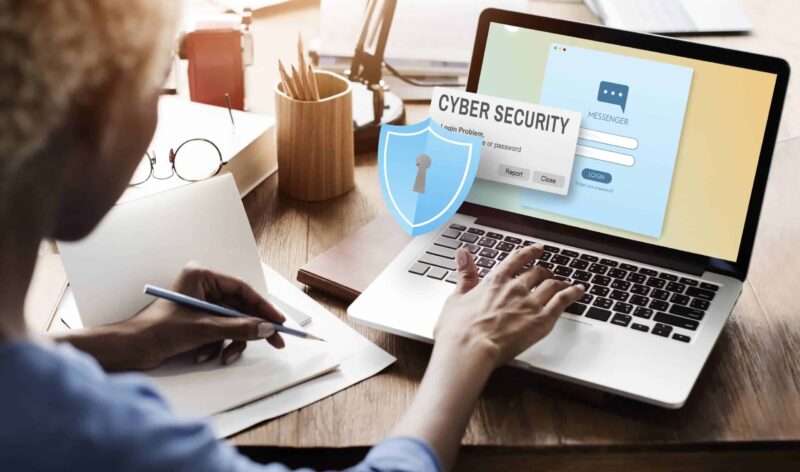Small businesses are becoming increasingly vulnerable targets for cybercriminals. In order to protect their data and resources, small business owners must understand the importance of cybersecurity and take steps to secure their networks. Here are five essential tips that every small business owner should keep in mind when it comes to staying safe online.
1. Understand the Basics of Cybersecurity
When it comes to staying safe online, understanding the basics of cybersecurity is essential for small business owners. Cybersecurity involves using a variety of tools and processes to protect electronic systems from hackers, malicious software, and other cyber threats. To help keep your business secure online, here are five key cybersecurity tips every small business owner should know:
- Utilize strong passwords – Passwords are the first line of defense against unauthorized access to sensitive data. Ensure all user accounts have unique complex passwords that include at least 12 characters with a mix of upper and lower case letters as well as numbers and symbols
- Install security software – Make sure you have up-to-date antivirus software installed on all devices including computers, tablets and smartphones used by your employees or customers when accessing your network or website. Also, consider investing in additional safety measures such as firewalls or malware protection programs to further safeguard against potential threats like viruses and phishing attempts.
- Keep system updates current – It’s important to keep device operating systems up-to-date with the latest patches and security updates provided by the vendor in order to prevent any vulnerabilities from being exploited by hackers or malicious actors seeking access into your system environment.
- Educate employees about cybersecurity risks – Employees who are aware of potential risks can make informed decisions when surfing the web at work which helps reduce incidents caused by human error such as clicking on suspicious links sent via email or inadvertently downloading malware onto their computer systems through unsafe downloads from untrusted websites.
- Back up data regularly – Regularly backing up critical information stored on company servers is an important step in making sure youre prepared if disaster strikes; whether it be due to hardware failure, ransomware attack, natural disaster or accidental deletion. Having backups available allows businesses quick recovery times while minimizing financial losses resulting from downtime associated with these events
2. Invest in Comprehensive Security Solutions

Small business owners must invest in comprehensive security solutions to protect their data and networks. As cybercrime continues to increase, it is essential that businesses have the right tools and processes in place to ensure robust protection against potential threats.
Comprehensive security solutions can help protect personal information, financial transactions, and other confidential data by using encryption technology along with identity management safeguards. These measures will also provide ongoing monitoring of any suspicious or unauthorized activity on your network so that you can respond quickly if a breach occurs. By investing in comprehensive security solutions small business owners can feel confident that their systems are secure from malicious actors.
3. Train Employees on Secure Practices
Employee training on secure practices is essential for any small business. It\’s important to ensure that your staff understands the basics of cybersecurity, such as recognizing suspicious emails, best password practices, and safe online activities. Teach them how to identify malicious links and attachments in emails, recognize phishing attempts, use strong passwords with two-factor authentication, and never share sensitive information over public networks.
Employees should also be educated about common cyber threats such as malware and ransomware so they can spot potential intrusions before it’s too late. Have regular reviews of security policies and procedures with employees to reinforce the importance of cyber safety in the workplace.
4. Implement a Password Management System

To protect your business from cyber-attacks, the implementation of a password management system is essential. To keep all passwords secure and access limited to only those who need it, powerful software can be used to generate strong passwords and track user activity. Such systems also help you identify potential security breaches quickly, enabling you to respond swiftly and mitigate any damage.
While setting up the password management system, make sure that the passwords are regularly updated with new ones created by an algorithm for extra protection. Additionally, enforcing multi-factor authentication should be considered as an additional measure for securing accounts against unauthorized access. By doing so, you will ensure that no one can gain entry into your data without passing multiple levels of verification. Implementing these measures will go a long way in protecting your small business from cyber-attacks.
5. Monitor for Unauthorized Access to Systems and Data
Monitoring for unauthorized access to systems and data is essential for small business owners. Having proper security measures in place can help reduce the chances of a malicious attack on your business. Installing up-to-date firewalls, encrypting sensitive data, and monitoring user activities are all important steps toward securing your systems from potential threats.
Additionally, you should also keep an eye out for suspicious network activity or signs of compromise such as unexpected file changes or sudden spikes in traffic. Taking proactive steps to detect and respond quickly can ensure that any malicious attempts at accessing your system are prevented before they cause damage. Keeping these tips in mind will help bolster the cybersecurity posture of small businesses everywhere.



